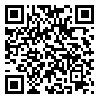Volume 10 -
IJMEHM 2017, 10 - : 34-43 |
Back to browse issues page
Download citation:
BibTeX | RIS | EndNote | Medlars | ProCite | Reference Manager | RefWorks
Send citation to:



BibTeX | RIS | EndNote | Medlars | ProCite | Reference Manager | RefWorks
Send citation to:
Nateghpour M, Kazemian A, Isazadeh N. An Introduction to the Stand of Medicine among Muslims in the Past. IJMEHM 2017; 10 :34-43
URL: http://ijme.tums.ac.ir/article-1-5851-en.html
URL: http://ijme.tums.ac.ir/article-1-5851-en.html
1- Research Centre of Quran, Hadith and Medicine, Tehran University of Medical Sciences, Tehran, Iran
2- Research centre of Quran, Hadith and Medicine, Tehran University of Medical Sciences, Tehran, Iran.
2- Research centre of Quran, Hadith and Medicine, Tehran University of Medical Sciences, Tehran, Iran.
Abstract: (7479 Views)
Islamic culture has a bright and comprehensive history in human civilization. Based on Islamic teachings the spirit and body are in close relation with a mutual influence on humans’ health. The Holy Qur’an as well as the Prophet of Islam and his successors (peace be upon them) have paid deep attention to both spirit and body. Moreover, according to religious scholars’ decree (fatwa) cleanness and neatness has been mentioned as the main condition for worships to be accepted. The Prophet (PUH) said: “Neatness is half of the faith”. Therefore, efforts to keep the health of both spirit and body are important to Muslims. Although, in ancient time, health and medicine were bined together, later they were divided into three sections including health, clinical diagnosis of disease and treatment. Based on Islamic teachings, Muslim scholars learned medicine and then began to translate some Greek, Seriani and Indian medical knowledge into to Arabic language, which has shaped the golden age of Islamic medicine spanning between the 8th and the 15th Centuries.
Among the Islamic countries Iran had a specific place in the field of medical sciences. Jondishapour was one of the most prominent medical educational centers back then. This article elaborates on the status of medicine based on historical evidence as well as Muslim physicians in the golden age of Islamic medicine.
Among the Islamic countries Iran had a specific place in the field of medical sciences. Jondishapour was one of the most prominent medical educational centers back then. This article elaborates on the status of medicine based on historical evidence as well as Muslim physicians in the golden age of Islamic medicine.
Type of Study: commentary |
Subject:
History of Medicine
Received: 2016/12/26 | Accepted: 2017/12/24 | Published: 2017/12/24
Received: 2016/12/26 | Accepted: 2017/12/24 | Published: 2017/12/24
Send email to the article author
| Rights and permissions | |
 |
This work is licensed under a Creative Commons Attribution-NonCommercial 4.0 International License. |





